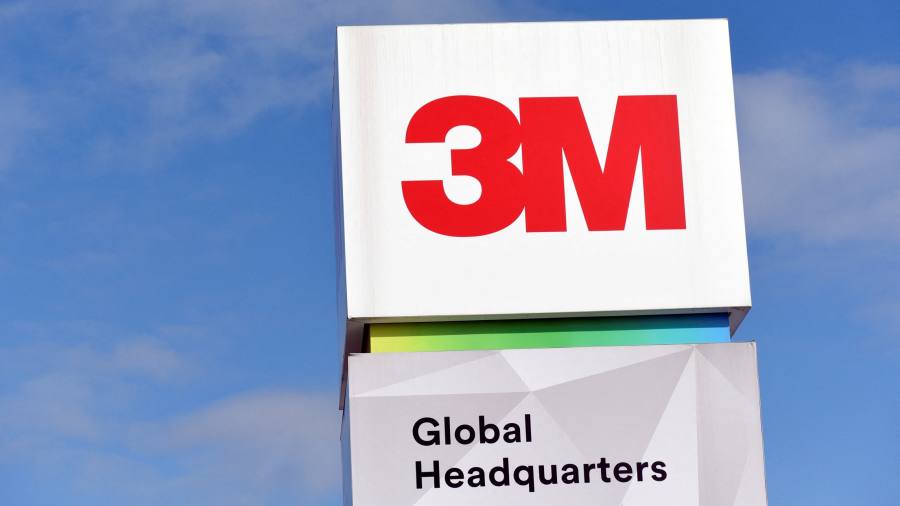A federal judge has dismissed 3M’s attempt to use the US bankruptcy system to manage personal injury claims related to earplugs it sold, in the latest setback to a legal strategy corporations have used to shield financial damage from lawsuits.
Soldiers filed about 255,500 personal injury claims claiming that their hearing was damaged by earplugs made by 3M subsidiary Aearo Technologies. 3M placed Aearo into bankruptcy last year, setting aside $1bn to cover settlements as part of the case.
But US bankruptcy Judge Jeffrey Graham in Indiana on Friday ruled Aearo should not be allowed use the bankruptcy system because it remained financially secure for the moment.
“Sitting here today and considering the evidence presented by the parties, the court simply cannot conclude that the Aearo entities’ petitions were anything but fatally premature,” Graham said in dismissing 3M’s petitions.
Graham said this situation could change because Aearo and 3M would face waves of litigation upon dismissal of the bankruptcy, which could rapidly undermine their financial positions. The ruling would not forestall a repeat bankruptcy filing of Aearo — or an initial filing by 3M — should the circumstances warrant it, he said.
The decision is a blow to 3M, which had sought to use the US bankruptcy system to limit its exposure to the earplug litigation and seek a global settlement of all current and future claims.
3M shares fell almost 1 per cent following the ruling. They are down almost a third over the past 12 months, amid concerns about its exposure to earplugs and litigation over so-called forever chemicals.
The judgment paves the way for the continuation of jury trials against 3M in what has become one of the largest mass tort litigations in US history. 3M, which is an industrial conglomerate best known for selling Post-it notes and Scotch tape, said Aearo is assessing whether to appeal.
3M is the latest in a succession of companies including Johnson & Johnson and the Koch Industries to use the bankruptcy system to manage personal injury claims. But courts have begun closely scrutinising the strategy, which typically allows a parent to protect itself from legal claims by having a subsidiary file for Chapter 11 bankruptcy protection.
In March a judge dismissed J&J’s first attempt to use the bankruptcy courts to manage claims that its talcum powder could cause cancer. However, the world’s biggest healthcare products company responded by enabling a subsidiary LTL Management to refile within hours of the dismissal.
In 2008 3M spent $1.2bn to buy Aearo, which made the military grade earplugs that are the subject of the litigation. 3M denies the earplugs were faulty.
Lawyers representing the soldiers said they would move swiftly to lift a stay on civil lawsuits so the cases could be taken to juries.
The earplug litigation is not the only legal liability facing 3M. The company faces thousands of lawsuits alleging its products exposed people to so called “forever chemicals”, which do not break down in nature or the human body overtime.
Deane Dray, analyst at RBC Capital markets, said 3M could now seek to settle the earplug litigation, which could cost it $5bn to $10bn. He said the “forever chemicals” liabilities are expected to be many times larger with 3M’s total litigation financial exposure valued at $30bn.
Read the full article here




